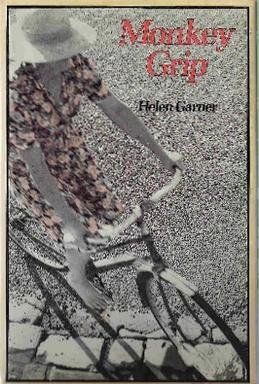Related Research Articles

Helen Garner is an Australian novelist, short-story writer, screenwriter and journalist. Garner's first novel, Monkey Grip, published in 1977, immediately established her as an original voice on the Australian literary scene—it is now widely considered a classic. She has a reputation for incorporating and adapting her personal experiences in her fiction, something that has brought her widespread attention, particularly with her novels Monkey Grip and The Spare Room (2008).
Timothy Burstall AM was an English Australian film director, writer and producer, best known for hit Australian movie Alvin Purple (1973) and its sequel Alvin Rides Again (1974).

Dorothy Coade Hewett was an Australian playwright, poet and author, and a romantic feminist icon. In writing and in her life, Hewett was an experimenter. As her circumstances and beliefs changed, she progressed through different literary styles: modernism, socialist realism, expressionism and avant garde. She was a member of the Australian Communist Party in the 1950s and 1960s, which informed her work during that period.
Gerald Murnane is an Australian novelist, short story writer, poet and essayist. Perhaps best known for his 1982 novel The Plains, he has won acclaim for his distinctive prose and exploration of memory, identity, and the Australian landscape, often blurring fiction and autobiography in the process. The New York Times described Murnane in 2018 as "the greatest living English-language writer most people have never heard of", and he is regularly tipped to win the Nobel Prize in Literature.
There were two Australian periodicals called The Port Phillip Gazette.
David Gordon Brooks is an Australian poet, novelist, short-fiction writer and essayist. He is the author of four published novels, four collections of short stories and five collections of poetry, and his work has won or been shortlisted for major prizes. Brooks is a highly intellectual writer, and his fiction has drawn frequent comparison with the writers Italo Calvino and Jorge Luis Borges.
Verity Nancy Burgmann is Adjunct Professor of Politics in the School of Social Sciences at Monash University and Honorary Professorial Fellow in the eScholarship Research Centre at the University of Melbourne, where she is Director of the Reason in Revolt website. In 2013 she was Ludwig Hirschfeld Mack Visiting Professor of Australian Studies in the Institut für Englische Philologie at the Freie Universität Berlin.
Barry Hill is an Australian historian, writer, and academic.
Sophie Cunningham is an Australian writer and editor based in Melbourne. She is the current Chair of the Board of the Australian Society of Authors, the national peak body representing Australian authors.

Monkey Grip is a 1977 novel by Australian writer Helen Garner, her first published book. It initially received a mixed critical reception, but has now become accepted as a classic of modern Australian literature. The novel deals with the life of single-mother Nora, as she narrates her increasingly tumultuous relationship with a flaky heroin addict, juxtaposed with her raising a daughter while living in share houses in Melbourne during the late 1970s. A film based on the novel, also titled Monkey Grip, was released in 1982. In the 1990s, when critics identified the Australian literary genre of grunge lit, the book was retrospectively categorized as one of the first examples of this genre.
McPhee Gribble was an Australian publishing firm, based in Carlton, Victoria. It became an imprint of the Penguin Group.
The Adelaide Festival Awards for Literature, from 2024 the South Australian Literary Awards, comprise a group of biennially-granted literary awards established in 1986 by the Government of South Australia, announced during Adelaide Writers' Week, as part of the Adelaide Festival. The awards include national as well as state-based prizes, and offer three fellowships for South Australian writers. Several categories have been added to the original four.
Diana Mary Gribble was an Australian publisher, book editor and businessperson. A feminist, Gribble was one of the most influential figures in the Australian publishing scene and wider cultural life between 1975 and 2010.
Peter Bray Gallery was established as Stanley Coe Gallery in 1949 before being renamed in 1951, after a change of management. Situated at 435 Bourke Street, Melbourne, Victoria, Australia, it closed in 1957. Many of the major names in mid-century Australian contemporary art showed there during its brief, but very busy, lifespan.
Barbara Mary Ramsden was an Australian book editor who worked for Melbourne University Press from 1941 to 1967.
Elizabeth Orme Vassilieff, néeSutton was an Australian artist, writer and peace activist. She initially published under her first married name, Elizabeth Hamill, and later also wrote as Elizabeth Vassilieff-Wolf.
Marian Quartly is an Australian social historian. She is professor emeritus in history at Monash University.
Elizabeth May Jones, best known as Liz Jones, is an Australian theatre director and artistic director of La Mama Theatre in Melbourne.
Diane Linley Langmore is an Australian historian best known for her work as general editor of the Australian Dictionary of Biography.

Desmond James Fennessy was an Australian journalist and magazine editor, and Australian Trade Commissioner in Seoul.
References
- ↑ Melbourne, The University of. "McPhee, Hilary - Woman - The Encyclopedia of Women and Leadership in Twentieth-Century Australia". www.womenaustralia.info. Retrieved 14 April 2022.
- ↑ "UTR6.358 Hilary McPhee Award (2016 - )". The University of Melbourne. Retrieved 14 May 2023.